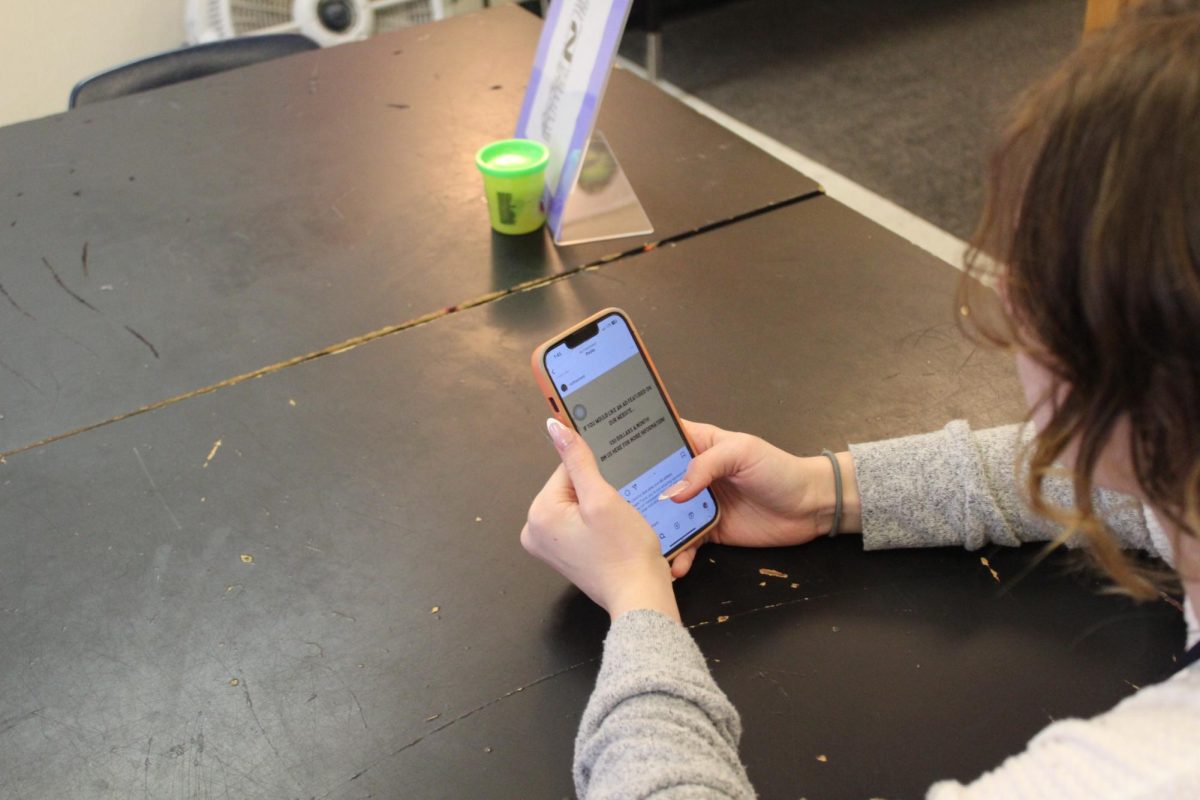In today’s world, social media apps appear on almost every phone screen. As social media evolves, kids use it frequently and spend the majority of their day scrolling on Instagram or TikTok. Additionally, parents started providing their younger kids with iPads to keep them entertained which allows parents to socialize or scroll peacefully.
Although screen limits can help kids and even parents stay off their phones, users can easily ignore the restrictions. All phones allow the ability to track how frequently someone uses social media and can see a review of which apps they open repeatedly. The majority of those apps include social media platforms.
“I feel like teens today are on social media too much. I feel like being on social media too much can change how you perceive things, can change how you act and how you view relationships. People are definitely addicted to media; I see kids on their phones all through the day and getting mad when a teacher tells them to put it away,” sophomore Christian Davis said.
Teens today constantly check social media, whether during school or while lying in bed. As the world enters a new era of technology, teachers and parents struggle to find ways to create memories with children that do not involve technology. As children grow up, technology increasingly acts as the axis on which children’s lives revolve.
Social media allows teens and young kids to follow along with their friends’ daily lives, but the majority of people do not show their authentic selves online. By staging their posts and videos, influencers allow younger kids to think everyone lives a perfect life. Social media enables the creation of a fake persona that allows teens and children of all ages to idolize influencers who create videos and pictures for entertainment. Watching influencers live a perfect lifestyle while the viewer struggles can ruin the viewer’s mental health and his or her self-perception.
“In my opinion, scrolling on social media all day really makes me feel like I did nothing with my day and wasted away my time. I have a hard time putting my phone down and doing errands or cleaning because it is just so easy to say one more video. I think social media should really work on promoting mental health instead of focusing on keeping kids scrolling,” sophomore Thomas Albritton said.
The majority of teens come home from a day at school or from extracurriculars and hop on social media to see what their favorite influencers or friends did that day. While checking the media and new posts, teens encounter hundreds of staged pictures, which leads to teens comparing themselves to their peers. Social media allows teens to express themselves, but through the years, it turned into teens trying to compete for the picture-perfect family or the number of likes on a post.
Mental illness in teens continues to come up frequently and while this helps raise awareness and helps teens feel comfortable seeking professional therapy, people fail to realize that social media can contribute to teens struggling with mental health. Consuming media may not always contribute to their negative feelings, but social media companies should revamp to allow people to truly express themselves free of judgment; The algorithm to keep users scrolling should not continue.
People believe that social media will become unstoppable and corrupt the minds of young children. However, that does not align with the truth. Limiting social media use can improve the image and negative effects media may carry. The social media algorithm aims to keep people scrolling for as long as possible, but understanding the limits can fix that. As social media improves, people should allow social media to affect their everyday lives in a positive way.
Social media proves every day that it can help people. For example, certain social media platforms such as WhatsApp allow families who live across the world to connect. Students find new ways to study using social media or putting a video on in the background connecting to what they need to accomplish. By gaining a platform, certain creators such as Charli D’Amelio have used it for positive reinforcement by supporting charities and raising awareness of important events. Social media should exist without the need for restrictions. Social media should already display less addictive qualities than it does now. Telling people when they need to stop and limiting social media makes people crave it. Creators found ways to form an opinion that they knew others would agree with. Social media needs to revamp itself and become less addictive so that people of all ages do not fear what media will turn into in the future.










